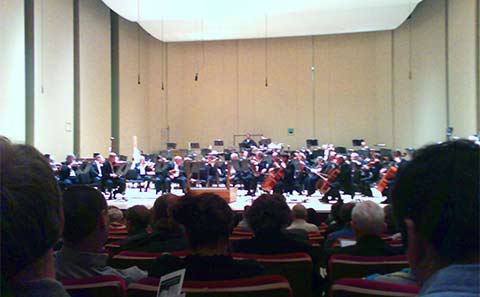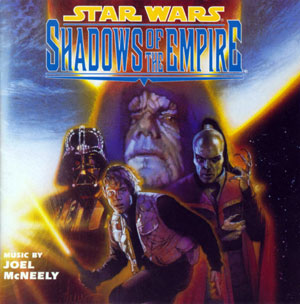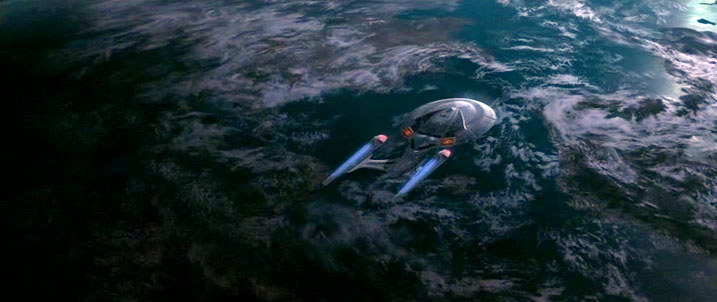I spent a good seven+plus hours burning through some iTunes today to make up for yesterday’s somewhat disappointing performance a shortened day at the office will do that. With about 100 songs to choose from, I had a very hard time narrowing down the song of the day, so lucky you, here’s three songs to choose from. Choose wisely.
Orbital: Time Becomes
[audio:061021OrbitalTimeBecomes.mp3]Constructed from a single line spoken by Worf from the 2nd season Star Trek: The Next Generation episode Time Squared which I happened to see just the other day—it’s almost unwatchably bad, this song is more of an experiment in recording technique than actual music. But it’s fun to have your own personal Moebius.
Time Squared of course, is not to be confused with the 5th season episode Cause and Effect, where the Enterprise is destroyed every 11 minutes or so.
Tortoise: Swung From The Gutters
[audio:061021TortoiseSwungfromtheGutters.mp3]From TNT, this song is just great; not quite as good as The Equator, but still one of my faves from the band.  .
.
Boston Pops conducted by John Williams performing the theme to Star Trek
[audio:061021BostonPopsStarTrek.mp3]A very unusual and extended take on the classic and well-known theme to the original Star Trek television program, performed live in concert by the Boston Pops.



